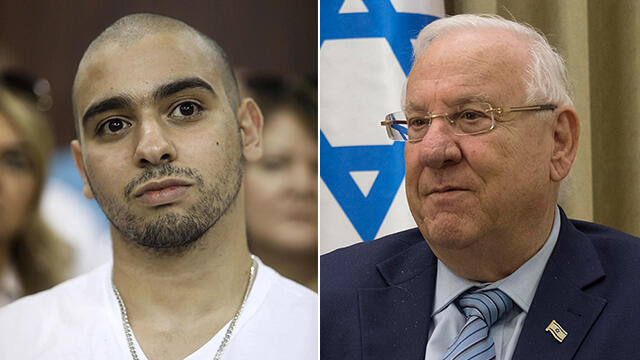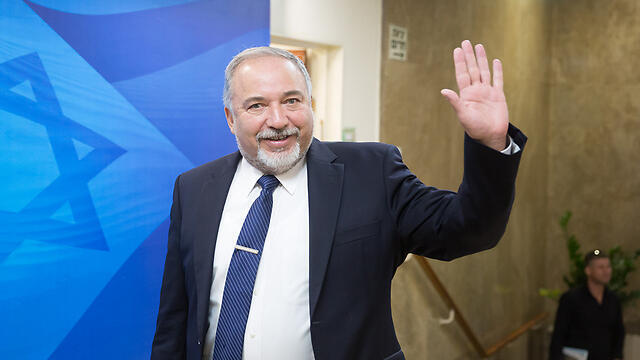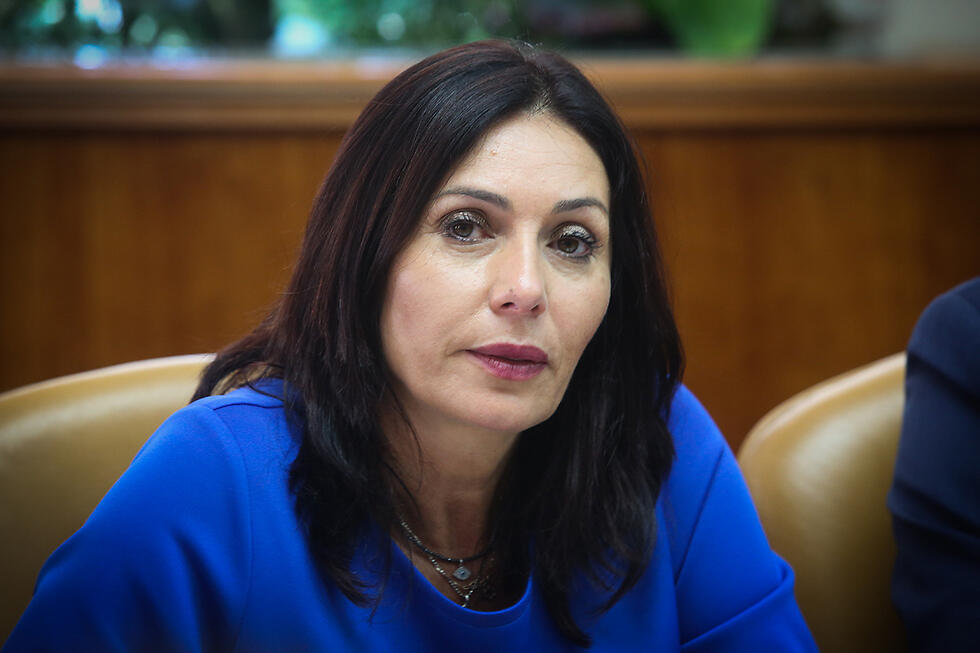Getting your Trinity Audio player ready...
President Reuven Rivlin rejected a request Sunday to pardon the former IDF soldier Elor Azaria, who was convicted of manslaughter earlier this year and imprisoned for shooting to death a neutralized terrorist in March 2016, saying that to grant him early release would have negative implications for both the army and the state.
"The President concluded that taking all considerations into account ... an additional lightening of your sentence would harm the resilience to the Israel Defense Forces and the State of Israel," Rivlin wrote in a letter to Azaria explaining his decision.
"The values of the Israel Defense Forces, and among them the Purity of Arms, are the core foundation of the strength of the Israel Defense Forces, and have always stood strong for us in the just struggle for our right to a safe, national home, and in the building a robust society," the letter continued.
"The President has given his opinion regarding the offenses committed by you and their circumstances, the content of your written application, and all the material and opinions brought before him, and has decided to reject the application," Azaria was informed.
“From examining the material before him, the President learned that in passing sentence, the military court took into account the circumstances raised by you—which appear in part in this pardon request—as consideration of leniency, and noted it took them into account in passing a lighter sentence."
Azaria filed his request a month ago ,telling the president: "I unfortunately did not receive a just trial. This is how I feel, and nothing can change it. In any case, I ask for a measure of justice and mercy, the essence of the presidential pardon, from His Honor the President in this request."
In September, IDF Chief of Staff Gadi Eisenkot reduced Azaria’s prison sentence by four months after he was sentenced to a year and a half in prison in February, dividing the country and giving rise to a string of legal appeals .
In justifying his decision, Rivlin reminded Azaria that Eisenkot had already demonstrated compassion.
“In addition, in September 2017, the Chief of Staff saw fit to further ease your sentence and reduce the punishment by four months from the prison sentence imposed upon you, for reasons of compassion and while taking into consideration your military service as a soldier in the operational arena," Rivlin's letter stated.
Defense Minister Avigdor Lieberman, who publicly claimed he supported pardoning Azaria, issued a statement expressing “regret” following the announcement of Rivlin’s decision.
“I appreciate and admire the President of the State, but I regret his decision to reject the pardon request by the soldier Elor Azaira,” Lieberman wrote.
“President Rivlin had the opportunity to put an end to this affair that rocked Israeli society. Apart from the personal price paid by the soldier and his family, I believed and still believe that in this unique case it was also appropriate to consider the public interest, the need to heal the rifts in society, and the impact of the event and the trial on IDF soldiers and the youth who are about to be recruited,” he continued.
“Even in this moment,” he concluded, “we cannot forget that we are talking about a exceptional soldier and a terrorist who came to kill.”
A more vitriolic condemnation of Rivlin’s decision was expressed by Culture and Sports Minister Miri Regev, who scolded the president for “harming the pardoning institution and choosing to abandon Elor."
“The pardon institution is intended to discuss these exact kind of cases, to close the gap between the official law and the sense of justice and the heart of the general public,” Regev wrote.
“The president had the chance to send the message to soldiers that even if they make mistakes, they will be judged on the disciplinary level but they will not be abandoned,” she added.
Azaria’s family later responded to Rivlin’s decision, “with disappointment and regret.”
“The family is angry about the fact that Elor’s father, Charlie, heard about the decision through the media while he was waiting in hospital to undergo an MRI scan due to a deterioration in his medical state,” the family vented in a statement.
“The president could have put an end to this terribly agonizing journey that has befallen the family, put an end to the argument that has torn the nation apart and finished this needless imprisonment of our Elor,” the statement continued.
“There was room for more compassion when we are talking about an exceptional combat soldier who acted against a terrorist who came to murder soldiers and civilians in Hebron. As a result of the incident, Charlie suffered a stroke a few months ago and recently his situation deteriorated again.
“It is regrettable that the President's Residence preferred to issue a statement to the media before bothering to at least inform the family," the statement continued.
“The family will continue to act with determination in order to bring about the release of Elor from prison and is extremely disappointed with the president’s lack of sensitivity.”






